Chunwei Zhang

Chunwei Zhang is a member of the Communist Party of China, holds a doctorate, is a second-level professor and doctoral supervisor, a national leading talent, a Clarivate Highly Cited Researcher, an Elsevier Highly Cited Scholar in China, and ranked among the top 2% of scientists worldwide by Stanford University.
In 1995, he was admitted to the undergraduate program in Architectural Engineering at Harbin University of Architecture (now Harbin Institute of Technology), ranking first in his grade for four consecutive years. He was directly recommended for graduate studies and graduated with a bachelor's degree in July 1999, receiving honors such as Excellent Graduate of the Ministry of Construction, Outstanding Graduate of the China Civil Engineering Society, and Excellent Graduation Project of Harbin University of Architecture. From September 1999 to March 2005, he pursued his master’s and doctoral studies at Harbin Institute of Technology, majoring in Engineering Mechanics for his master’s and Disaster Prevention and Mitigation Engineering and Protection Engineering for his doctorate. He was granted direct admission to the doctoral program in February 2001, obtained his master’s degree in Engineering Mechanics in July 2001, and his Ph.D. in Disaster Prevention and Mitigation Engineering and Protection Engineering in April 2005, earning honors such as Excellent Graduate of National Defense Science and Technology Commission-affiliated Universities and Outstanding Graduate of Harbin Institute of Technology.
He has long been engaged in interdisciplinary teaching and research in mechanics and civil engineering. His expertise includes structural vibration control, blast and impact resistance of structures, and structural health monitoring. He has led over 20 major vertical projects, including key international cooperation projects under the National Key R&D Program and the National Natural Science Foundation of China. As first or corresponding author, he has published over 200 SCI-indexed papers in journals such as Structural Control and Health Monitoring and Engineering Structures. He is the primary inventor of more than 70 authorized invention patents in China, the United States, Europe, and Japan. He has published over 20 academic monographs, textbooks, special issues of international journals, international conference proceedings, and various standards.
As the principal contributor, he has received the First Prize of Shandong Province Science and Technology Progress Award, three Second Prizes at provincial and ministerial levels, and the Japan Seismic Isolation Society Award. He has also been a key contributor to awards such as the National Science and Technology Progress Award (Second Class), the Ministry of Education Science and Technology Progress Award (First Class), the Guangdong Province Science and Technology Progress Award (First Class), and the Liaoning Province Technology Invention Award (Second Class).
He serves as an editorial board member of the international journal International Journal of Structural Stability and Dynamics and the well-known Chinese journal Journal of Vibration Engineering. He was Chair of the 8th International Conference on Protection of Structures against Hazards, Secretary-General of the 7th World Conference on Structural Control and Monitoring, and a committee member of the first through ninth Asia Pacific Young Researchers and Graduates Symposium on Structural Engineering. He has also served on the advisory or academic committees of over ten international and domestic academic conferences. He is a Fellow of the International Society of Engineering Asset Management.
He previously served as Vice Chair of the first Council of the Shandong Youth Scientists Association and is recognized as a leading talent for civil engineering in Shandong Province’s Double First-Class initiative, a leading figure in the Shandong Taishan Scholar Advantageous and Characteristic Discipline Talent Team, and a specially appointed expert in the Shandong Taishan Scholar Discipline Program. He has received the Shandong Natural Science Academic Innovation Award, the Shandong Youth Science and Technology Award, and the Qingdao Model Worker honor. He is listed among Shandong Province’s young and middle-aged experts with outstanding contributions and recognized as an academic leader in Liaoning Province.
He holds adjunct professor and doctoral supervisor positions at internationally renowned universities including the University of Technology Sydney and Queensland University of Technology in Australia. He has supervised over ten postdoctoral fellows, more than ten doctoral graduates, and over forty master’s graduates, many of whom have pursued joint training or exchange programs at internationally recognized universities in Australia, Canada, the United States, the United Kingdom, New Zealand, Italy, South Korea, Japan, Singapore, and Hong Kong. He plans to recruit doctoral and master’s students in mechanics, civil engineering, materials science and engineering, artificial intelligence, and related fields. His team has ample enrollment slots and funding, and can offer excellent students opportunities for study, exchange, or joint training at internationally renowned universities.
Email: mcie@sut.edu.cn
Junxiang Wang
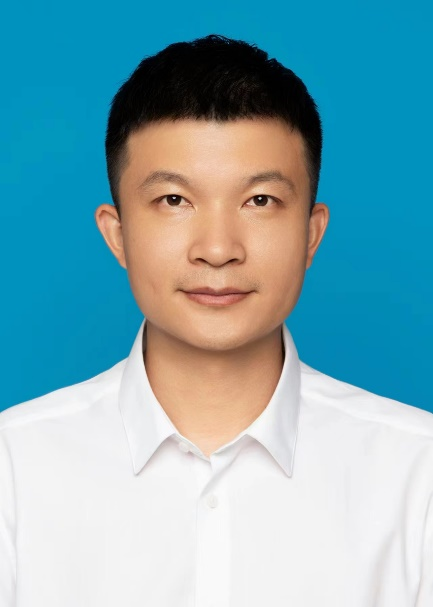
Junxiang Wang, born in March 1985, is a member of the Communist Party of China, holds a Doctor of Engineering degree, and is a professor and doctoral supervisor. He serves as the Associate Dean of the School of Architecture and Civil Engineering. He has been recognized as a Young Top Talent under the Liaoning “Xingliao Talent Plan,” a key tier talent of the Liaoning Provincial “Hundred-Thousand-Ten Thousand Talent Project,” an Innovative Talent in Liaoning Higher Education, and an executive member of the Cold Region Geotechnical Mechanics and Engineering Branch of the Chinese Society for Rock Mechanics and Engineering.
He specializes in teaching and research in rock mechanics and underground engineering, focusing on the dynamic response of deep rock masses and underground structures to blast impacts, tunnel blasting theory and dynamic disaster prevention technology, rock constitutive theory, and near-field dynamic numerical methods. He has undertaken more than 20 projects funded by the National Natural Science Foundation of China, Liaoning Provincial Natural Science Foundation, key research projects of the Liaoning Provincial Department of Education, China Postdoctoral Science Foundation, and enterprise-commissioned topics. He has received two provincial and ministerial second-class awards and one municipal third-class award for technological invention. He has published over 50 academic papers, including 25 indexed by SCI and EI, holds 20 authorized invention patents, 10 software copyrights, and has published 2 monographs.
Email: wangjunxiang@sut.edu.cn
Bo Zhou
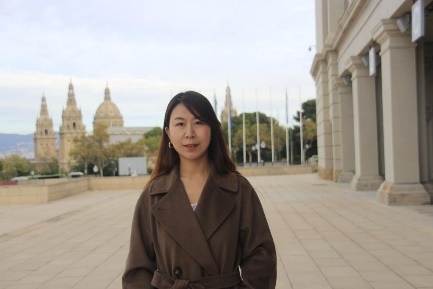
Bo Zhou, born in September 1976, holds a doctorate, is a professor and doctoral supervisor, and is recognized as a leading academic talent among young and middle-aged scholars at Shenyang University of Technology. She is a key-level talent in Liaoning Province’s "Hundred-Thousand-Ten Thousand Talent Project," an Innovative Talent in Liaoning Higher Education, a member of the 9th Liaoning Provincial Association for Science and Technology, an executive member of the Rotor Dynamics Committee and a member of the Fault Diagnosis Committee of the Chinese Society of Vibration Engineering, and serves as the vice chairman of the Liaoning Vibration Engineering Society. She was a visiting scholar at Kochi University of Technology in Japan and is a reviewer for the National Natural Science Foundation of China and the international top journal Transactions on Industrial Electronics, as well as several domestic journals including Journal of Applied Mechanics. She is also a Technical Program Committee member for top IEEE conferences and a registered Senior Engineer in Intelligent Wind Power Operation and Maintenance certified by a U.S. accreditation association.
She currently teaches in the Building Environment and Energy Application Engineering program. Under her guidance, university students have won four provincial-level awards in scientific competitions, and three of her master’s and doctoral students have received national scholarships. Her main research areas include: (1) utilization of renewable energy and building energy-saving technologies; (2) health monitoring and energy efficiency diagnostics for large electromechanical equipment. She has led two projects funded by the National Natural Science Foundation of China and completed over 20 national and provincial research projects, as well as more than 50 enterprise-commissioned projects. She has received four provincial and ministerial Science and Technology Progress Awards and holds over ten authorized patents. In recent years, she has published three monographs and over 90 papers in core domestic and international journals such as Finite Fields and Their Applications, Journal of Instrumentation, and Solar Energy.
Her research team consists of 2 professors, 3 associate professors, 5 lecturers, and over 30 doctoral and master’s students. They conduct technical innovation and university-enterprise cooperation in contract energy management, clean heating renovation, and energy-saving and environmental protection projects. Notably, the infrared inspection technology for wind turbine blades and its in-service inspection products made their debut at the 2018 Beijing International Wind Energy Exhibition.
Email: liguodapple@sina.com / 764481527@qq.com
Address: Mailbox No. 574, No. 111 Shenliao West Road, Economic and Technological Development Zone, Shenyang City
Postal Code: 110870
Haijun Wang
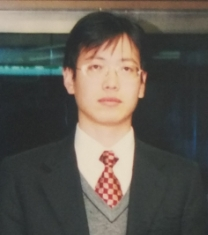
Haijun Wang is a professor and doctoral supervisor, serving as the academic leader of the Civil Engineering discipline and head of the Concrete Materials and Structures research team at the university. He is also the leader of the Ideological and Political Education Teaching Team for Liaoning Province, a recognized Teaching Master of Liaoning Province, a member of the “Hundred Talents” tier in Liaoning’s Hundred-Thousand-Ten Thousand Talent Project, and a leading talent in Shenyang City.
In teaching, he is the lead instructor for the course Fundamentals of Concrete Structures, which has been awarded a national-level top online course, and for Concrete Structure Design, a nationally recognized top offline course. He has edited and published six textbooks, including one that was selected as a national planned textbook during the 12th Five-Year Plan period. He has led six provincial and ministerial-level teaching reform projects and received one national second-class teaching achievement award, as well as first, second, and third-class teaching achievement awards in Liaoning Province.
In research, he has completed 20 funded projects at various levels, published 35 papers indexed by SCI, EI, and ISTP, holds 11 patents, one software copyright, and has authored two monographs. He contributed to the Liaoning provincial standard Technical Specification for Steel Tube Concrete Structures and other standards. His projects have won awards including the Second Prize of Liaoning Province Science and Technology Progress, Third Prize of Henan Province Science and Technology Progress, First Prize of Liaoning Province Natural Science Academic Achievement, and the First Prize of China Railway Construction Corporation Science and Technology.
Research interests: structural design theory and analysis, concrete materials and durability, steel-concrete composite structures, wind turbine tower structures
Email: wang_navy@hotmail.com
Lu Yang
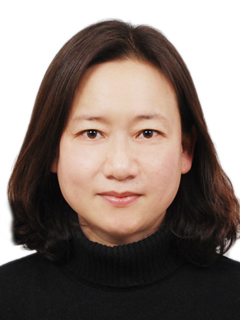
Lu Yang (born May 1973) holds a doctorate, is a third-level professor and doctoral supervisor, recognized as a “Hundred Talents” at the hundred-tier level in Liaoning Province’s Hundred-Thousand-Ten Thousand Talent Project, a leading talent in Shenyang City, a first-tier recipient of the Liaoning Province Excellent Talent Program for Higher Education, and an outstanding talent in Shenyang’s university talent program. She is a communication reviewer for the National Natural Science Foundation of China and a member of the 12th and 13th sessions of the Liaoning Provincial Political Consultative Conference.
In research, she focuses on the performance of green building materials, intelligent monitoring technologies, and disaster prevention and mitigation. Major research achievements and awards include: two Third Prizes for Science and Technology Progress from Liaoning Province; one Third Prize for Natural Science from Liaoning Province; first and second prizes for Scientific and Technological Innovation for Workers in Shenyang; one Third Prize for Science and Technology Progress in Shenyang; one First Prize and two Second Prizes for Natural Science Academic Achievements in Liaoning Province. She has led projects funded by the National Natural Science Foundation, Ministry of Education’s Study Abroad Fund, Liaoning Hundred-Thousand-Ten Thousand Talent Fund, Tsinghua University National Key Laboratory Fund, Liaoning Province First-Tier Outstanding Talent Fund, and Liaoning Provincial Department of Education, among others.
She has published over 110 papers, with more than 70 indexed by SCI and EI, authored three monographs and two textbooks, and holds seven authorized patents.
Email: yanglu515@163.com
Hui Li
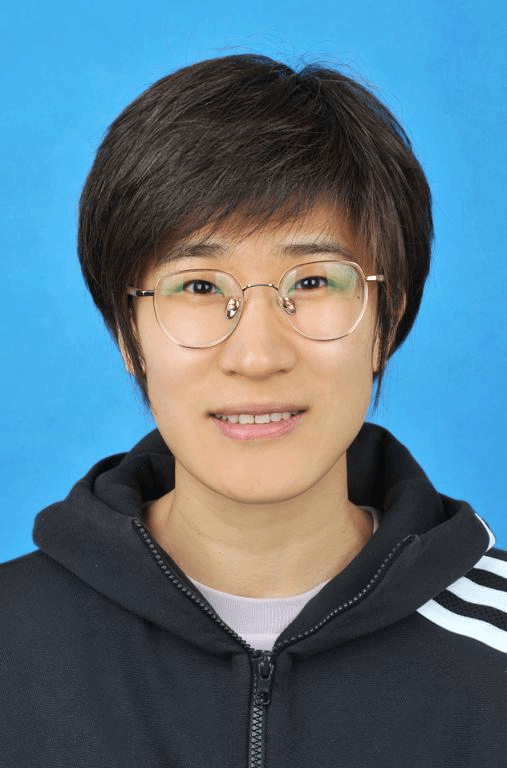
Hui Li, Doctor of Engineering, professor, and doctoral supervisor.
She primarily focuses on the design of large wind turbine blades, structural mechanics analysis, and operational damage repair. She is recognized as a “Ten-Thousand Talent” at the top tier of Liaoning Province’s 13th batch of the Hundred-Thousand-Ten Thousand Talent Project. She has published over 30 academic papers in domestic and international SCI/EI journals, holds 9 invention patents as the first inventor, and authored two books: Wind Turbine Blade Structural Design and Structure Design for Wind Turbine Blade.
In recent years, she has led one project funded by the National Natural Science Foundation of China, one provincial joint general fund project, one project by the provincial Department of Education, and one “Double Hundred Project” by the Shenyang Science and Technology Bureau in Liaoning Province. She has also undertaken more than ten enterprise-commissioned projects. She participated in the National Key Basic Research Program (973 Program) projects on “Fundamental Aerodynamics of Large Wind Turbines” and “Key Mechanical Issues and Design Implementation of Large Wind Turbines,” as well as multiple other national key research projects.
Email: lh1985@sut.edu.cn
Guoyang Liu
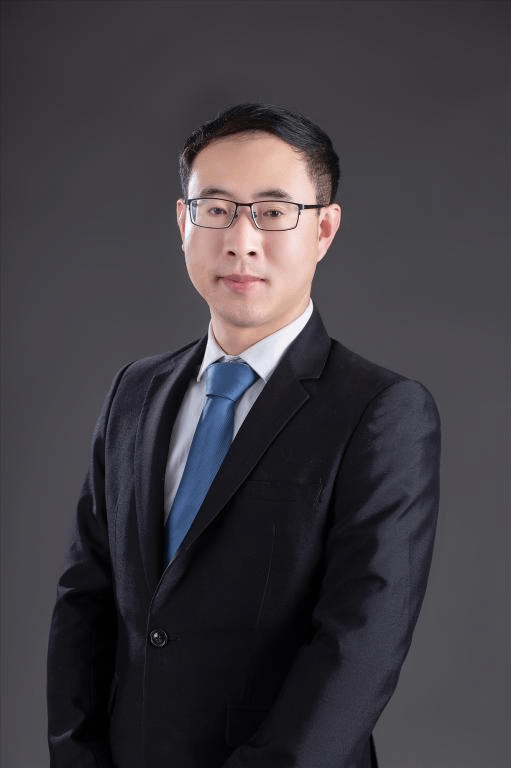
Guoyang Liu, member of the Communist Party of China, holds a Doctor of Engineering degree, is an associate professor, and a doctoral and master's supervisor. He currently serves as the Chair of the Department of Civil Engineering and Secretary of the Third Faculty Party Branch.
He specializes in teaching and research in rock mechanics and rock engineering, with long-term focus on numerical simulation of discontinuous deformation in rock mass engineering, experimental research, and geological disaster monitoring, identification, and early warning. He has led 10 projects including the National Natural Science Foundation Youth Project, Liaoning Provincial Science and Technology Department projects, Liaoning Provincial Department of Education projects, Shenyang University of Technology Youth Teacher Research Capacity Cultivation Fund, Shenyang University of Technology vertical research funding support plan, and enterprise-commissioned projects. As a key participant, he has contributed to eight projects including the National Key R&D Program, National Natural Science Foundation, Tibet Autonomous Region Natural Science Foundation, Central Universities Basic Research Business Fee Key Projects, Shenyang Major Scientific Research and Technology Plan Projects, and Dalian University of Technology Xinghai Backbone Training Program.
He has published over 20 papers in domestic and international journals, with significant work appearing in high-level journals such as International Journal of Rock Mechanics and Mining Sciences, Rock Mechanics and Rock Engineering, International Journal of Computational Methods, and Chinese Journal of Geotechnical Engineering. Two of his papers were selected as ESI Highly Cited Papers. He has delivered eight academic presentations at conferences and sessions.
He holds 5 software copyrights, 9 patents, and has authored one monograph. He has received one provincial and ministerial first-class award and two second-class awards.
He serves as an editorial board member for the Journal of Computer Methods in Civil Engineering, reviewer for multiple domestic and international journals, communication reviewer for the National Natural Science Foundation of China, council member of the Engineering Geological Mechanics Branch of the Chinese Society for Rock Mechanics and Engineering, and member of the Youth Working Committee of the China Occupational Safety and Health Association.
Email: liugyang@163.com; liuguoyang@sut.edu.cn
Zhonghua Yang
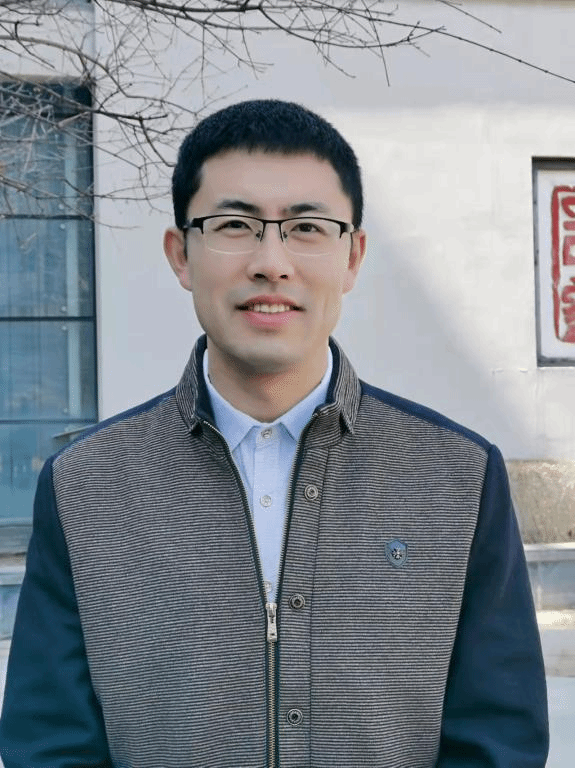
Zhonghua Yang, member of the Communist Party of China, holds a doctoral degree (postdoctoral researcher), is an associate professor and master’s supervisor, a selected talent in Liaoning Province’s “Hundred-Thousand-Ten Thousand Talent Project,” a nationally certified first-class registered constructor, and a postdoctoral researcher at the University of South Carolina, USA.
He primarily engages in teaching and research in the field of micro- and nanoscale heat transfer and advanced thermal management technologies. He has led and participated in two National Natural Science Foundation projects, one Liaoning Provincial Science and Technology Department project, and two Liaoning Provincial Department of Education projects. He has published over 10 SCI-indexed papers, including in top disciplinary journals such as Nanoscale and Nanotechnology, and was invited to feature his research on the back cover of Physical Chemistry Chemical Physics.
In teaching, he is the lead instructor for multiple courses including Principles of Heat and Mass Transfer, Gas Transmission and Distribution Networks, and Engineering Structural Testing, with good teaching outcomes. He actively leads and participates in undergraduate innovation and quality development activities, guiding one provincial-level undergraduate innovation project.
Email: 331808017@qq.com
Junyu Liu
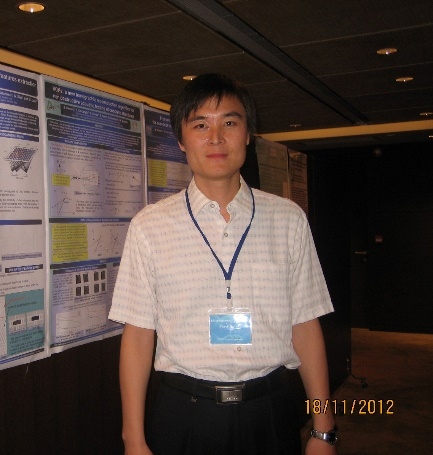
Junyu Liu, born in May 1978 in Shenyang, Liaoning Province, holds a doctoral degree (postdoctoral researcher) and is an associate professor. He is a visiting scholar at the School of Civil and Environmental Engineering, University of New South Wales, a member of the third cohort of young academic backbone faculty, and recognized as an advanced scientific worker at the university.
His research primarily focuses on the theory and applications of the scaled boundary finite element method in fracture mechanics and structure–infinite foundation dynamic interaction, seismic analysis and fracture analysis of concrete dams, and numerical methods for unsteady seepage problems.
In teaching, since starting his career, he has taught seven undergraduate courses including Elasticity Mechanics, Structural Mechanics, and Engineering Structural Seismic Resistance; two graduate courses including Advanced Concrete Structure Theory; and three courses for international students including Concrete Structure Design. He has also contributed to the compilation of two textbooks.
In research, he has led one National Natural Science Foundation Youth Fund project and has participated in seven national and provincial-level scientific research projects. He has published over 20 papers, including 2 indexed by SCI and more than 10 indexed by EI.
Email:liujunyu2003@163.com;jyliu@sut.edu.cn
WeChat:liujunyu20131004